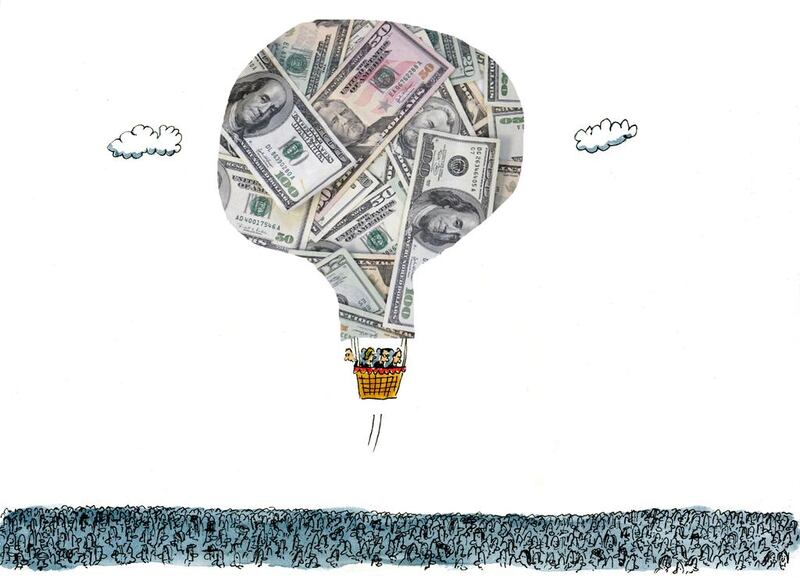If your are not a socialist in your 20s, you have no heart. If you are not a capitalist in your 30s, you have no brain. So a saying goes. But capitalism is not for everyone.
Inequality is rising. Poverty is increasing across the globe. The super-rich just keep getting richer. We know this. We know this intuitively. We know this anecdotally. And we know it from the likes of the charity Oxfam, who state that the 85 wealthiest people in the world own the equivalent wealth of half the globe's population. This is why the Occupy movement of 2011 came into being, and why the financial crisis of 2008 happened. And this is why, to quote the findings of a recent IMF/World Bank meeting: Growth and inequality are mutually incompatible.
One of the issues is that those who own continue to accumulate wealth, and those who work are running to keep up with the cost of living.
Simply put, capitalism is not working. Not for the majority of us, that is. Capitalism is a system that favours those who already have wealth, concentrating more of it in fewer hands, and this poses a danger to all of us. These are the evidence-based findings of a new book that was published recently, Capital in the Twenty-First Century by the French economist Thomas Piketty. This book analyses that instead of just 'knowing' this. We now have graphs and mathematical formulae to back the argument and wave under the noses of those who advocate capitalism as the system for a better world, a place where they believe the inequality gap inevitably grows smaller as economies develop and become more sophisticated – according to the 1971 Nobel Prize winner, Simon Kuznets.
This is not to say that capitalism will self-destruct as Karl Marx believed.
Although, going by what happened in Egypt, as an example of what has played out in many other nations, it could be said that it has done just that. Egypt was lauded for its fast-growing economy before it imploded – precisely because the elite accumulated greater wealth, which was not shared with the rest of the Egyptian people, the increasing inequality became intolerable, and social discord is still with us as a result. This scenario is playing out elsewhere as well.
Another big idea here is that the inequality gap is growingat a faster rate.
Let us be honest, if you are reading this, you are unlikely to ever be one of the world's super-rich, and so we must ask what all this means to you, to me, for ordinary folks.
Whenever I talk to people about the worsening state of the world's economic sharing of wealth, and the knock-on effect of this being that we will all be poorer in future, most people think of themselves first – and who can blame them? – wanting to protect themselves and their loved ones.
Guess how? Mostly by becoming ardent capitalists ... the belief is that if there is no safety net, we each need to create our own. Those who are still socialists at heart, or think of greater well-being, say that once they have 'made it', they will give back and do their own bit for others. This means that politicians will be voted in on the back of what they can do for people's finances – right now. And that usually goes against the greater, long-term good of the very people they serve.
So what is Piketty's solution? Well he advocates a global progressive tax, based on the taxation of private property and wealth. But the reality is that no political party would every pursue this.
So here lies the conundrum: The present situation is not sustainable, but no sane solution will be pursued by those in power. We will continue to have key policymakers "differing sharply" (as the IMF/World Bank meeting referenced above put it) about the priorities to address this worsening situation.
In the meantime, perhaps the saying should go like this: If you are not a socialist in your 20s, you do not have a heart. If you are not a capitalist in your 30s, you do not have a head. If you are not solvent in your 40s, you do not have a hope.
Capitalism will not save the world – what are you doing to save yourself?
Nima Abu Wardeh is the founder of the personal finance website www.cashy.me. You can contact her at nima@cashy.me
Follow us on Twitter @TheNationalPF
If capitalism can’t save the world, what can?
If your are not a socialist in your 20s, you have no heart. If you are not a capitalist in your 30s, you have no brain. So a saying goes. But capitalism is not for everyone.

Editor's picks
More from the national




